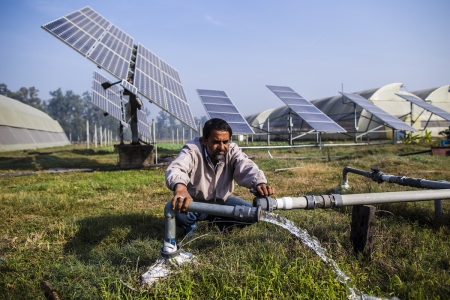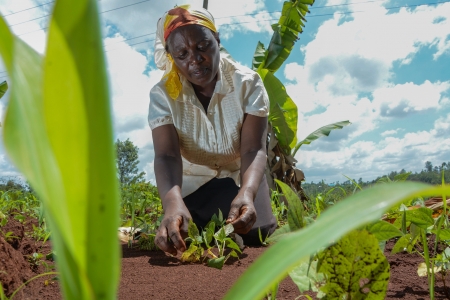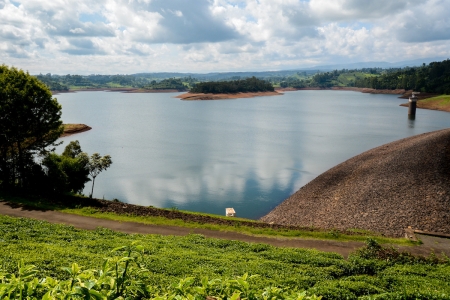United Nations climate negotiations will be critical for the future of the planet, right? The world is rapidly approaching planetary boundaries beyond which rising emissions of greenhouse gases could trigger dangerous and perhaps even runaway global warming. There is no time to lose. We need less politics, and more action.
Well, not so fast, maybe. Some people think this crisis agenda is being talked up by power brokers intent on seizing the levers of environmental control. And these naysayers are not right-wing climate deniers. They are leftie social scientists who believe that narratives about climate change are being used by doom-mongers not to disrupt free markets but to trump social justice.

They argue that economic development for the poor is being stymied, and rainforests are being taken from their inhabitants by global elites in the name of halting greenhouse gas emissions and maintaining “carbon sinks”. They say that feeding a hungry planet has become an excuse for pushing intensified farming systems and land grabs that penalise rural communities. And protecting biodiversity is a handy alibi for turning pastures into playgrounds for the rich.
Surely they have a point.
Welcome to the Oligarchocene
We live in a finite world where planetary boundaries limit the expansion of human activities. Sometime during 2016, this new human-dominated era is likely to be formally named by geologists as the Anthropocene. Most natural scientists believe that, in the Anthropocene, global action is required to maintain a "safe space" for our activities within the inescapable boundaries.
But many social scientists believe that such an apparently progressive agenda encourages the depoliticising of profoundly political conflicts over the planet's resources. The crisis agenda promotes technocratic solutions. The Anthropocene could become an "oligarchocene". Capitalism has captured conservation.
This battle was played out in a conference on resource scarcity in the Anthropocene at the Institute of Development Studies (IDS) at the University of Sussex in September. The big-ticket debate was between the guru of planetary boundaries, Johan Rockström of the Stockholm Resilience Centre and Steering Committee Chair of the CGIAR Research Program on Water, Land and Ecosystems, and social anthropologist Melissa Leach, director of the IDS.
Rockström lined up the planetary boundaries we threaten to breach: among them the capacity of nature's water cycle, the greenhouse effect of carbon dioxide, the ability of ecosystems to survive biodiversity loss, and the over-fertilization of pretty much everywhere by nitrogen. “Earth has shown great resilience so far,” he said. But if we go too far, we face environmental tipping points that are “hard-wired in the earth system”. Things like collapsing ice sheets or the release of methane from thawing tundra could lead to soaring sea levels and runaway global warming.
But Leach, the social scientist, argued that many big global issues such as hunger and the movement of refugees were being redefined by some as the result of global environmental crises, whereas the environment was often, at best, a marginal factor. There are hungry people because they are too poor to buy what is available, not because of any absolute shortage of food, she argued. Millions flee Syria because of political breakdown and not, as some climate scientists have been arguing, because of a climate-change induced drought.
Natural scientists countered that social scientists may be rather good at deconstructing terms like the Anthropocene and analysing how doomsday environmental narratives have arisen, but that doesn't mean they have no reality. Social scientists risked sounding like climate deniers.
Battles raged over the politics behind GM technology; the sparing-versus-sharing debate over land use; whether payments for ecosystem services are socially inclusive or a Trojan Horse for privatizing the commons; and who is best at maintaining forests and the carbon they contain.
Engineering a good Anthropocene
Thankfully, amid the sound and fury, there was some meeting of minds. Rockström recognised that headline-grabbing global goals such as stopping warming at two degrees, "food for all" and water security could be achieved using different pathways. And different pathways could produce different sets of winners and losers.
He even agreed that the two-degree target was a political convenience around which diplomats could agree. Scientists engaged in discussions about planetary boundaries reckon a better figure would be 1.5 degrees, he said.
Leach meanwhile did not deny the existence of planetary boundaries, but argued that conventional discussion of the Anthropocene “ignores the politics”, and more discussions of pathways were needed.
Feeding a growing world population could be better achieved by helping hungry people grow more food, rather than grabbing their land to feed a globalized food marketplace. Similarly, she argued, we have choices about how to protect biodiversity. Rewilding could be used "to exclude local land users” or to enhance the control of the land's traditional stewards.
At root was the insistence of those with politics in their soul that creating a “good" Anthropocene requires recognizing social as well as planetary boundaries, and negotiating social as well as a physical landscapes. That might be a handy touchstone for enlightened debate in Paris.
For all their concern at the fate of the planet, negotiators need to consider the impacts of what they propose on vulnerable communities.
Fred Pearce attended Resource Politics: Transforming pathways to sustainability, organised by the STEPS Centre at the Institute of Development Studies, University of Sussex. He is on the Advisory Broad of the STEPS Centre.






/index.jpg?itok=EzuBHOXY&c=feafd7f5ab7d60c363652d23929d0aee)











Comments
Delighted to see Fred associated with the notion of "Engineering a good Anthropocene" after a number of disagreements on some efforts to do that.
The challenge of course will be to agree on how to set up the political system that decides what is good and what is not.
It would be helpful, as a start, to accept the principle that local preferences should guide local decisions. Too much of the environmental debate over the past two decades has been about people (generally from the north) seeking to impose their preferences on the south. Or, as they learnt to get more nuanced about it, using their resources to co-opt just enough voices in the south to appear credible.
Spot on, of course. Green imperialism and green grabs are, if not a total scourge, then certainly a pain in the butt for much of the South. Memo to Northerners heading for Paris: Just because you are green doesn't mean you are always on the side of the angels.